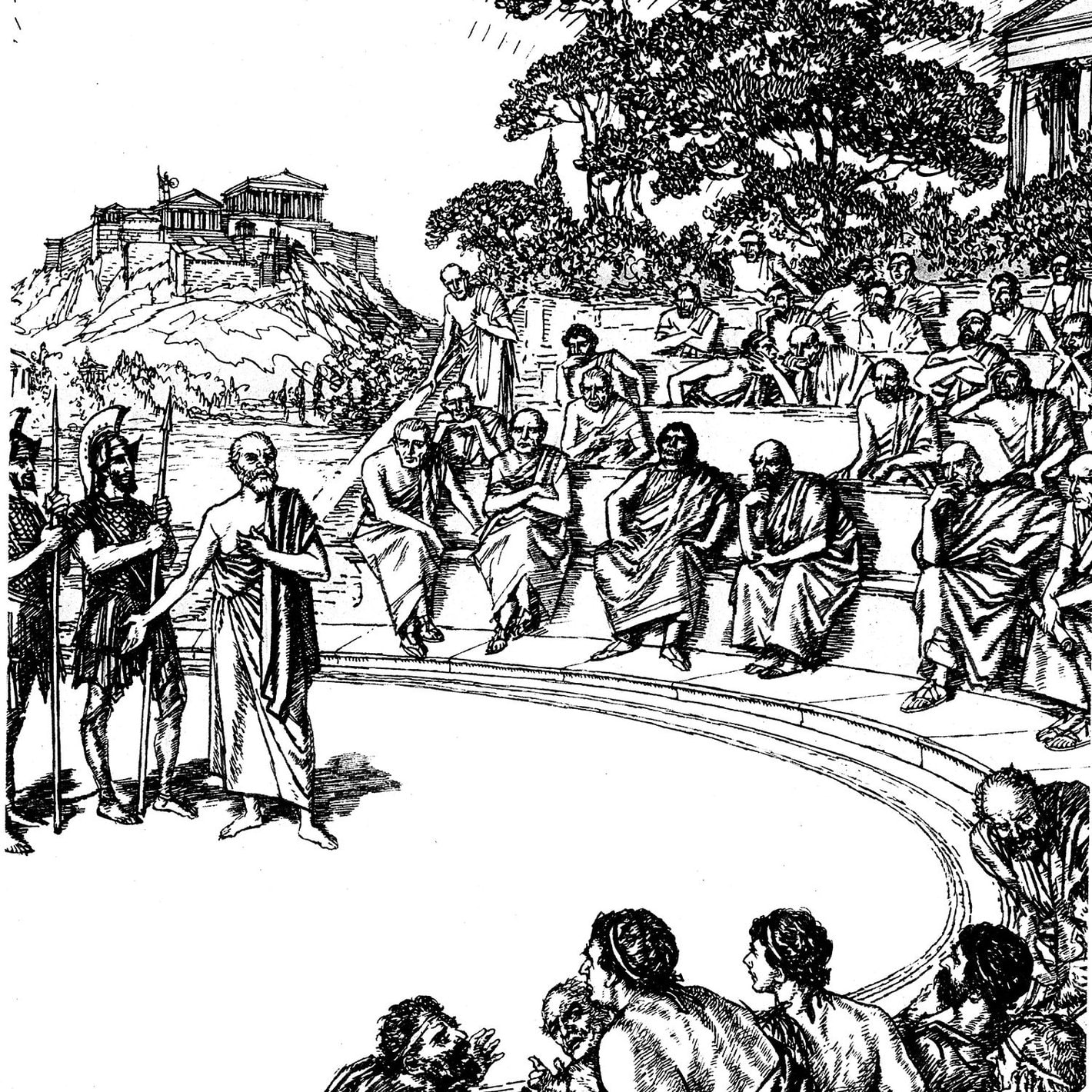The philosopher Socrates is probably the best known name in the history of philosophy. Less known is that he was a troll without peer. He routinely used logic tricks to tie up his fellow ancient Athenians in mental knots – a trait that made him quite unpopular. He could not stop trolling even at a trial for his life. Convicted by a small majority of jurors, Socrates trolled the jury hard. So hard, that when it was time to decide his punishment, many who had initially found him not guilty now voted to hit him with a death sentence. Below are thirty things about that and other fascinating philosophy and philosopher facts from history.

ADVERTISEMENT - CONTINUE READING BELOW
The Philosopher Who Trolled Himself Into a Death Sentence
For most people, the best known fact about Socrates is that the ancient Greek philosopher was executed by poison. Less known is that the man was a giant troll. He routinely asked passersby a series of questions that left them tied up in knots in attempts to find an answer. When they finally gave up and asked the smarty-pants philosopher to enlighten them, he would reply “all I know is that I know nothing“, and move on to troll the next victim. Understandably, that did not endear him to his fellow Athenians. That is not why they sentenced him to death, however. As seen further down the list, some of Socrates’ students got up to some heinous stuff. When the dust settled, many blamed their guru. In 399 BC, the Athenians tried Socrates of impiety and corruption of the youth, and the majority of jurors voted for conviction.

ADVERTISEMENT - CONTINUE READING BELOW
Next, the jury had to decide a punishment. The standard sentence was death, but Socrates was given the option to request an alternate punishment. He could have pled for leniency, or asked to be sent into exile. Odds are the jury, whose vote for conviction had not been overwhelming, would have agreed to exile him. However, Socrates could not drop his troll game. He instead doubled down, argued that he should be rewarded for his services to Athens, and requested that he be given free meals at public expense for the rest of his life. That angered the jury so much that it voted to execute him with poison with an even bigger majority than had voted to convict him. In other words, many jurors who had initially voted to acquit outright were so angered by Socrates’ argument, that they did a complete 180 and now voted for his death.

